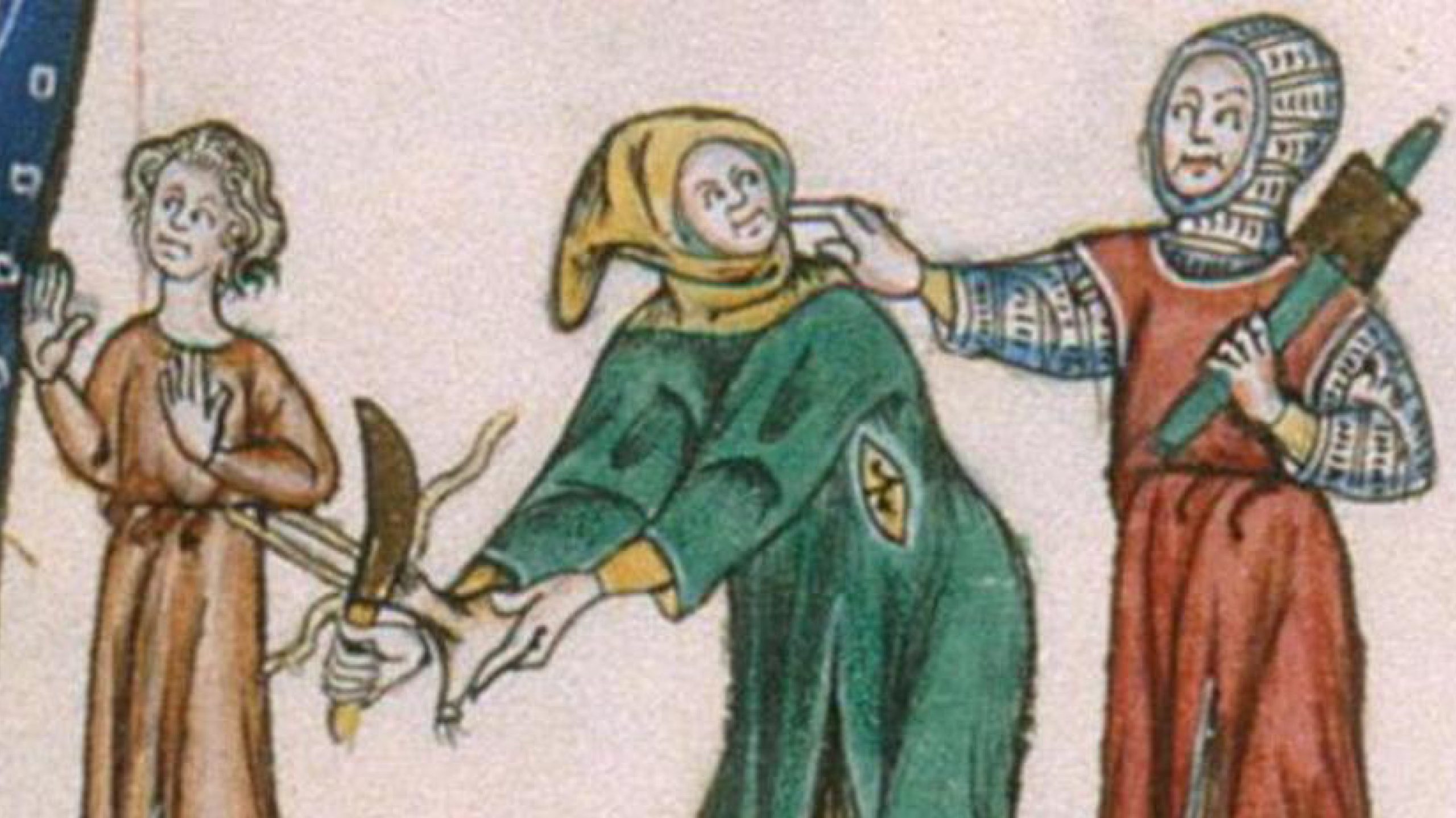Rebels, Scoundrels and Swindlers: The Criminal Underworld in Medieval French Literature

London, British Library, Add. 49622 (Gorleston Psalter), f° 153r
The Middle Ages are commonly perceived as a rigorous, oppressive and moralizing period. In fact, medieval literature and culture were fascinated by criminals, thieves, cheats and swindlers, in a dual phenomenon of celebrating and condemning the lawless life. This FREN 407 course focuses on characters and authors who lived on the margins of society, with little regard for law or authority.
We will begin with Béroul’s account of the thwarted love of Tristan and Iseut: the star-crossed lovers’ forbidden passion forces them to lie, cheat, and hide in the forest like common brigands. We will then move on to satirical literature, specifically the comic portrayal of low-level crime in 13th-century fabliaux and the animal shenanigans of Renart, the anthropomorphic fox around whom the tales of the anonymous Roman de Renart revolve. We’ll explore the chilling exploits of Eustace the Monk, a pirate and mercenary who sowed terror in the Boulonnais region and across the English Channel in the days of Prince John, before reading the adventures of the noble brigand Fouke FitzWarin, whose life may have inspired the legend of Robin Hood. We’ll conclude the semester with the work of François Villon, who revolutionized late medieval poetry while living the life of an outlaw on the run.
This exploration of medieval French literature through its fascination with the criminal world will allow us to explore the entire period of production, from the 12th to the 15th century. We’ll study Anglo-Norman and Anglo-French texts as well as continental texts, manuscripts and printed works, poetry and narrative, history and fiction.
Language of instruction: French
Instructor: Dr. Patrick Moran
Prerequisite: Either (a) all of FREN 311, FREN 321 or (b) all of FREN 328, FREN 329 and one of FREN 225, FREN 402.
FREN 407 is typically graded the following way:
Weekly Questions on Reading Assignment (= answer 1 out of a choice of 3 questions/week) – 15% (1.5% per week)
Group Presentation – 30%
Outline of Final Paper – 15%
Final Paper – 40%
- Béroul, Tristan et Yseut, Paris, Folio Classique, 2018, ISBN 978-2072775994
- Le Roman de Renart (extraits)
- Fabliaux (extraits)
- Le Roman d’Eustache le Moine (extraits)
- Fouke Fitz Warin (extraits)
- François Villon, Œuvres complètes, Paris, Folio Classique, 2020, ISBN 978-2072899607
Students need only purchase texts 1 and 6. All other reading material will be made available on Canvas.